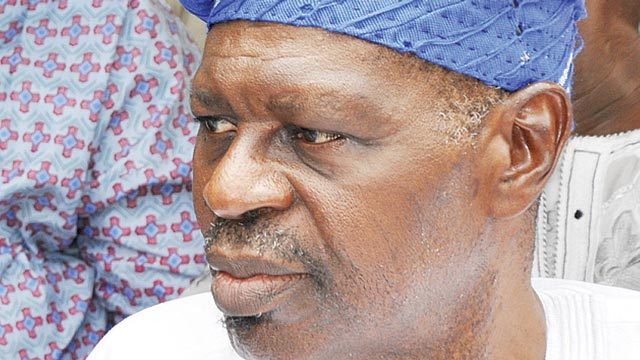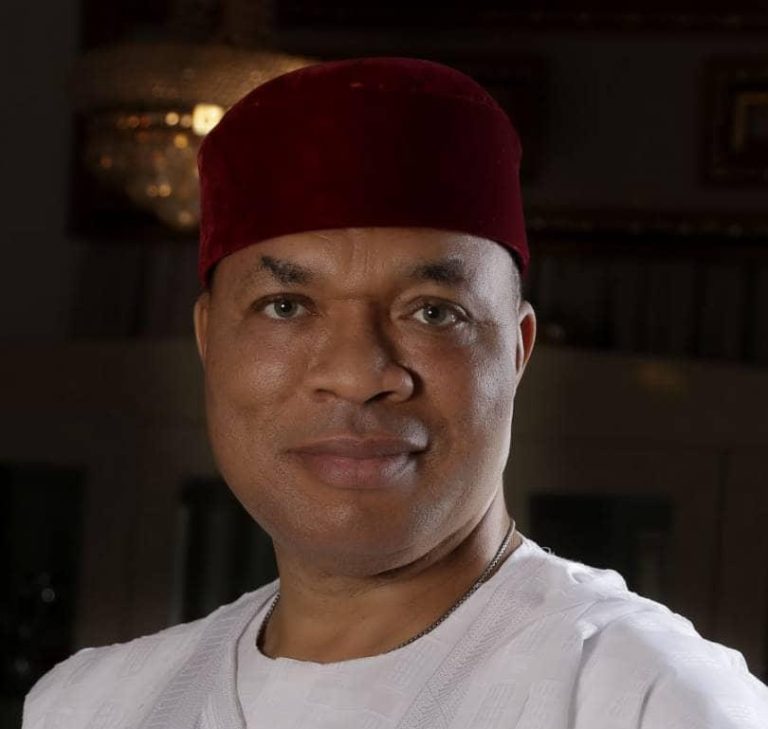
Yekini Adeojo stands as one of Nigeria’s most influential business leaders and political figures of the late 20th and early 21st centuries.
The co-founder of Oodua Group and former National Vice Chairman of the People’s Democratic Party (PDP) carved a remarkable path from humble beginnings to become a formidable force in Nigerian politics and business.
His entrepreneurial prowess, political acumen, and dedication to community development left an indelible mark on Nigeria’s socio-economic landscape.
This biography explores the extraordinary journey of a man whose vision and leadership transformed multiple sectors and inspired generations of Nigerian entrepreneurs.
Profile Summary of Yekini Adeojo
| Attribute | Details |
|---|---|
| Full Name | Chief Yekini Adeleye Adeojo |
| Nickname | “The Silent Achiever” |
| Gender | Male |
| Date of Birth | March 10, 1950 |
| Date of Death | October 23, 2023 (aged 73) |
| Place of Birth | Ibadan, Oyo State, Nigeria |
| Nationality | Nigerian |
| Ethnicity/Tribe | Yoruba |
| Religion | Islam |
| Education | University of Ibadan (Business Administration) |
| Profession | Entrepreneur, Politician, Philanthropist |
| Notable Roles | – Co-founder, Oodua Group – National Vice Chairman (South-West), People’s Democratic Party (PDP) – Chairman, O’dua Investment Company Limited – Member, Board of Trustees, PDP – Seriki Musulumi of Yoruba Land |
| Net Worth (Estimated) | ₦25-30 billion (as of 2023) |
| Physical Attributes | – Height: 5’10” (178 cm) – Build: Athletic in youth, distinguished in later years – Notable Features: Always impeccably dressed in traditional attire |

Yekini Adeojo Early Life and Background
Yekini Adeojo was born on March 10, 1950, in the bustling city of Ibadan, Oyo State. His parents, though not wealthy, emphasized the importance of education and hard work—values that would later define his approach to life and business.
Growing up in post-colonial Nigeria, young Yekini witnessed firsthand the nation’s transition to independence and the socio-economic challenges that followed.
His childhood was marked by remarkable discipline and intellectual curiosity. Despite financial constraints, his parents ensured he received quality education, recognizing his exceptional potential early on.
His father, a respected community leader, instilled in him the principles of integrity and service to community—lessons that would later form the cornerstone of his business philosophy and political career.
Adeojo demonstrated exceptional academic prowess, particularly in mathematics and business studies.
His teachers often remarked on his unique ability to solve complex problems with creative solutions—a skill that would later translate into his business acumen.
During his secondary school years, he began showing early signs of leadership, serving as a prefect and organizing various community initiatives.
Education and Formative Years of Yekini Adeojo
After completing his secondary education with distinction, Adeojo secured admission to the prestigious University of Ibadan, where he studied Business Administration.
His university years coincided with a period of significant political and economic transformation in Nigeria, following the oil boom of the 1970s. These developments deeply influenced his worldview and career aspirations.
At university, Adeojo distinguished himself not only academically but also as a student leader advocating for improved educational standards and campus facilities.
Yekini Adeojo eloquence and diplomatic approach to addressing issues earned him the respect of both peers and faculty. It was during this period that he began forming connections with future political and business leaders who would later play crucial roles in his career.
His education extended beyond formal academics, as he actively participated in business seminars and leadership workshops. He completed his degree with honors in 1974, graduating among the top of his class.
Yekini Adeojo final thesis, which explored strategies for indigenous business development in post-colonial Nigeria, received widespread acclaim and offered early insights into his business philosophy.
Business Career and Achievements
Yekini Adeojo’s business career began shortly after graduation when he joined a multinational corporation as a management trainee.
However, his entrepreneurial spirit soon led him to establish his first venture—a modest trading company that specialized in agricultural products. This initial enterprise, though small, demonstrated his keen business instincts and laid the foundation for his future success.
By the early 1980s, Adeojo had expanded his business interests to include transportation, real estate, and manufacturing.
His approach to business was characterized by strategic diversification and a commitment to creating value in underserved sectors of the Nigerian economy.
It was during this period that he co-founded what would later become the Oodua Group, a conglomerate that would transform the business landscape in Southwestern Nigeria.
His most significant business achievement came in the 1990s when he played a pivotal role in revitalizing the O’dua Investment Company Limited, turning it from a struggling regional investment vehicle into a thriving conglomerate with interests spanning multiple sectors including real estate, hospitality, financial services, and agriculture.
Under his leadership, the company’s asset base grew exponentially, creating thousands of jobs and contributing significantly to regional economic development.
Adeojo’s business philosophy centered on sustainable growth, ethical practices, and community impact.
He was among the early advocates for corporate social responsibility in Nigeria, instituting programs that addressed education, healthcare, and poverty alleviation in communities where his businesses operated.
His companies were known for their fair employment practices and commitment to professional development.
Political Career of Yekini Adeojo
While building his business empire, Adeojo simultaneously pursued a political career that would span several decades.
His entry into politics was motivated by a desire to influence policies that would create a more favorable environment for indigenous businesses and economic development.
In the early days of Nigeria’s return to democratic governance, Adeojo emerged as a key political figure in the Southwest region.
He was instrumental in the formation of the People’s Democratic Party (PDP) and served as its National Vice Chairman for the Southwest zone during a critical period in the party’s development. His political approach was characterized by moderation, consensus-building, and pragmatism.
As a member of the PDP’s Board of Trustees, he played a significant role in shaping the party’s policies and strategies. His political influence extended beyond party politics, as he served on various government committees focused on economic reforms and business development.
Though he never sought elective office himself, his behind-the-scenes influence on political decisions affecting business and economic policy was substantial.
Adeojo’s political career was not without challenges.
He navigated the complex and often turbulent waters of Nigerian politics with remarkable skill, maintaining his integrity while building coalitions across regional and partisan lines. His ability to bridge divides and foster dialogue made him a respected voice even among political opponents.

Philanthropy and Legacy
Beyond his business and political achievements, Yekini Adeojo was known for his significant philanthropic contributions.
He established the Adeojo Foundation in the early 2000s, which focused on educational initiatives for underprivileged children, healthcare access in rural communities, and vocational training for youth.
The foundation’s flagship program—the Adeojo Scholarship Scheme—has supported thousands of students through secondary and tertiary education.
Additionally, his foundation funded the construction of healthcare facilities in underserved communities and provided support for small-scale entrepreneurs through microfinance initiatives.
Adeojo’s approach to philanthropy reflected his business philosophy—focused on sustainable impact rather than mere charity. He believed in empowering communities to develop their own solutions to challenges, providing resources and support rather than creating dependency.
His passing on October 23, 2023, at the age of 73, marked the end of an era in Nigerian business and politics. His funeral was attended by prominent figures from across Nigeria’s political spectrum and business community, testament to the respect he commanded across divides.
Fast Facts About Yekini Adeojo
- Real Name: Chief Yekini Adeleye Adeojo
- Born: March 10, 1950, in Ibadan, Oyo State
- Died: October 23, 2023 (73 years old)
- Education: University of Ibadan, Business Administration
- Net Worth: Estimated at ₦25-30 billion at the time of his death
- Key Business: Co-founder of Oodua Group and Chairman of O’dua Investment
- Political Role: National Vice Chairman (South-West) of PDP
- Philanthropy: Established the Adeojo Foundation supporting education and healthcare
- Legacy: Transformed indigenous business development in Southwestern Nigeria
- Family: Survived by his wife, children, and grandchildren (details kept private per family wishes)
Frequently Asked Questions
Q: What was Yekini Adeojo’s most significant business achievement?
A: His transformation of O’dua Investment Company Limited from a struggling regional investment vehicle into a thriving conglomerate is widely considered his greatest business achievement.
Q: Did Yekini Adeojo hold any elected political positions?
A: No, despite his significant influence in Nigerian politics, Adeojo never sought or held elected office, preferring to work behind the scenes as a party leader and policy advisor.
Q: What was the focus of the Adeojo Foundation?
A: The foundation primarily focused on educational support for underprivileged children, healthcare access in rural communities, and vocational training for youth.
Q: What was Yekini Adeojo’s approach to business?
A: His business philosophy centered on strategic diversification, ethical practices, sustainable growth, and community impact, with an emphasis on creating value in underserved sectors.
Q: How did Adeojo contribute to Nigeria’s economic development?
A: Through his businesses, he created thousands of jobs, developed infrastructure, advocated for policies favorable to indigenous enterprises, and implemented corporate social responsibility programs that addressed community needs.
Conclusion
Yekini Adeojo’s life journey from a modest background to becoming one of Nigeria’s most influential business leaders and political figures exemplifies the power of vision, integrity, and perseverance.
His legacy extends far beyond his material success to include his contributions to Nigeria’s economic development, political maturation, and social welfare.
As Nigeria continues to navigate the challenges of economic diversification and sustainable development, Adeojo’s business philosophy and approach to leadership offer valuable lessons.
His ability to balance commercial success with social responsibility provides a template for a new generation of Nigerian entrepreneurs seeking to create businesses that generate not only profit but also positive social impact.
Though no longer physically present, Yekini Adeojo’s influence persists through the institutions he built, the policies he shaped, and the countless individuals whose lives were touched by his generosity and mentorship.
Yekini Adeojo story stands as a testament to what can be achieved when business acumen is guided by a commitment to the greater good—a legacy that will continue to inspire for generations to come.



